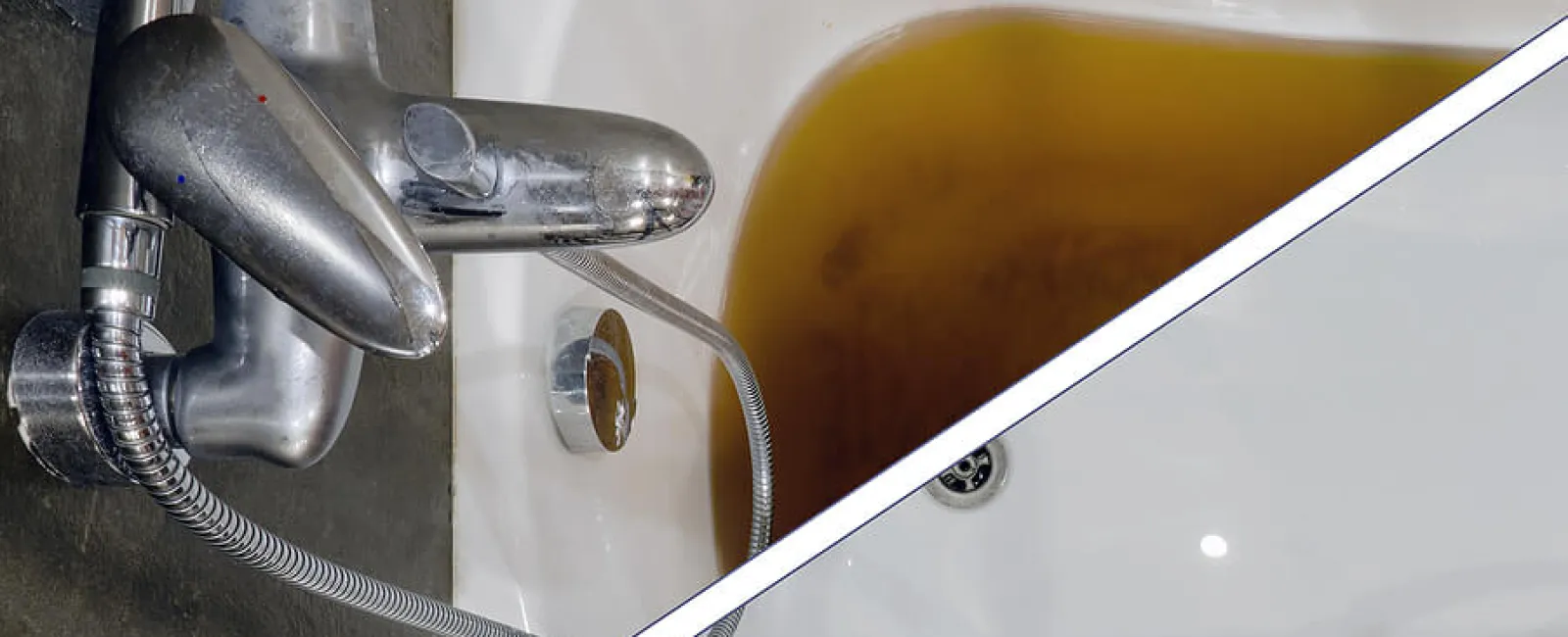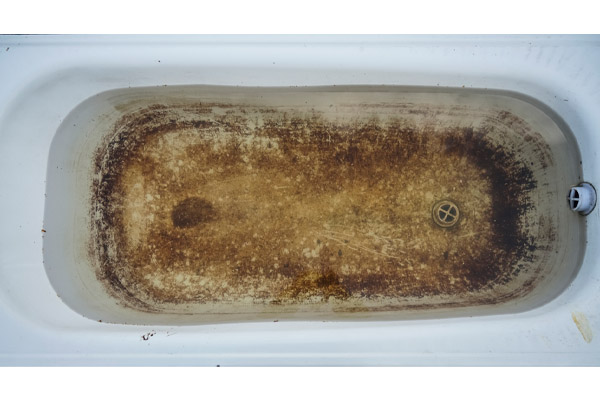In this article further down you can discover more excellent help and advice on the subject of Why is Sewage Backing Up Into My Bathtub?.

Sewage backup in the tub can be a traumatic and unhygienic trouble for any property owner. Not only is it troublesome, but it also postures serious health and wellness threats and indicates underlying issues with the plumbing system. Comprehending why sewer is turning up via the bathtub is important for taking proper activity to address the problem successfully.
Intro to the Problem
Typical Reasons for Sewage Backup
Blockages in the Sewer Line
One of the most common causes of sewage back-up is an obstruction in the sewage system line. This can take place because of the build-up of particles, oil, or international things in the pipelines, preventing correct flow and creating sewage to back up right into your tub.
Tree Root Intrusion
Tree origins looking for moisture and nutrients can penetrate sewer lines via small splits or joints. In time, these origins can grow and increase, causing substantial damages to the pipelines and causing sewer back-up issues.
Comprehending the Trouble
When sewer draws back up into the bathtub, it's a clear indicator of a trouble with the drainage system. The wastewater that ought to be streaming far from your home is rather discovering its back into your home, which can bring about significant damage and health hazards.
Prospective Reasons
Numerous aspects can contribute to sewer backup in the tub. From blockages in the sewage system line to issues with the plumbing facilities, recognizing the origin is essential for finding a solution.
Aging Framework
Older homes might have obsoleted plumbing systems that are more prone to rust, fractures, and deterioration. As pipelines age, they become more susceptible to leaks and blockages, boosting the probability of sewer backup cases.
Heavy Rainfall or Flooding
Throughout durations of heavy rainfall or flooding, the sewer system might become overwhelmed with excess water, causing backups and overflows. This can result in sewage supporting right into bath tubs and other components inside the home.
Signs of Sewage Backup
Foul Odors
Undesirable odors originating from drains pipes or components, specifically in the washroom, might suggest sewage back-up concerns. These odors are usually solid and relentless, indicating a trouble that calls for immediate interest.
Slow Draining Fixtures
Bath tubs, sinks, and commodes that drain pipes slowly or not whatsoever could be experiencing sewer back-up. If multiple fixtures are affected concurrently, it's most likely that the problem originates from a typical point, such as the major drain line.
Gurgling Noises
Strange gurgling or gurgling noises originating from drains when water is running in other places in your home are indicative of air entraped in the plumbing system. This air buildup can arise from sewer backup and need to be checked out promptly.
Wellness Risks Related To Sewer Backup
Contamination of Supply Of Water
Sewage backup can contaminate the water in your house, presenting a major health and wellness threat to you and your household. Direct exposure to contaminated water can result in intestinal issues, skin infections, and various other health problems.
Mold Development
Moisture from sewer backup can produce ideal problems for mold and mildew development in your home. Mold spores can worsen respiratory problems and cause allergies in delicate people, making timely cleanup essential.
Spread of Illness
Sewage has harmful bacteria, infections, and bloodsuckers that can cause a range of diseases, including liver disease, cholera, and gastroenteritis. Entering into contact with sewage or infected surfaces places you at risk of infection.
Tidying up After Sewage Backup
Sanitation Procedures
Completely decontaminate and sterilize influenced areas after sewer back-up to eliminate damaging microorganisms and prevent mold development. Usage appropriate cleaning items and protective gear to make sure secure and effective clean-up.
Reconstruction of Affected Locations
Fix any kind of damages to floor covering, wall surfaces, or components triggered by sewage backup. Depending on the degree of the damages, you may need to change carpeting, drywall, or various other materials to recover your home to its pre-loss problem.
Immediate Actions to Take
Shutting Off Water Supply
In the event of sewage backup, it's necessary to switch off the water supply to stop additional contamination and damages. Find the primary water shutoff valve in your home and closed it off till the concern can be settled.
Contacting a Specialist Plumber
Taking care of sewer backup is not a do it yourself task. Get in touch with a qualified plumber with experience in dealing with sewage-related issues to analyze the circumstance and perform essential repair services or cleanings.
Preventing Contact with Polluted Water
Till the sewage backup is solved, stay clear of contact with contaminated water to prevent the spread of germs and pathogens. Wear protective gear if you need to remain in the damaged location and wash your hands thoroughly afterward.
Preventive Measures
Routine Upkeep of Drain Lines
Arrange normal inspections and maintenance of your sewage system lines to recognize and attend to prospective issues before they escalate into major troubles. This can consist of cleaning debris, evaluating for tree root breach, and fixing any kind of damaged pipes.
Mounting Bayou Shutoffs
Think about installing bayou shutoffs in your plumbing system to prevent sewer from receding right into your home throughout durations of heavy rainfall or flooding. These valves immediately close when water starts backing up, shielding your residential or commercial property from contamination.
Correct Disposal of Home Waste
Avoid purging anything aside from bathroom tissue and human waste down the bathroom to stop clogs and obstructions in the sewer line. Dispose of grease, oil, and other household chemicals properly to lessen the risk of plumbing issues.
Sewage Coming Up Through the Bathtub?
Understanding the Plumbing System:
To understand why sewage is coming up through your bathtub, it is essential to have a basic understanding of the plumbing system. The plumbing system is a complex network of pipes, valves, fixtures, and drains that work together to provide clean water to your home and remove waste and sewage. The system consists of two parts: the supply system and the drainage system.
The supply system brings clean water to your home, while the drainage system removes wastewater from your sinks, toilets, showers, and bathtubs. The drainage system is connected to the main sewer line, which carries the wastewater to the municipal sewage treatment plant or septic tank.
Causes of Sewage Coming Up Through the Bathtub:
Sewage coming up through the bathtub can be caused by various factors. Some of the most common causes are:
Clogged Drain Pipes:
One of the most common reasons for sewage coming up through the bathtub is a clogged drain pipe. Over time, debris, hair, soap scum, and other foreign objects can accumulate in the drain pipes, leading to a blockage. This can cause the wastewater to back up and come out of the bathtub.
Main Sewer Line Blockage:
Another reason for sewage coming up through the bathtub is a blockage in the main sewer line. The main sewer line connects your home’s drainage system to the municipal sewer system. If the main sewer line gets clogged due to tree roots, grease buildup, or other obstructions, it can cause sewage to back up into your home’s plumbing fixtures, including the bathtub.
Sewage Backup:
Sewage backup is another common cause of sewage coming up through the bathtub. Sewage backup occurs when there is a problem with the municipal sewer system, such as heavy rainfall, flooding, or a malfunctioning pump. When this happens, sewage can flow back into your home’s drainage system and cause sewage backup in your plumbing fixtures, including the bathtub.
Broken or Damaged Pipes:
Finally, broken or damaged pipes can also cause sewage to come up through the bathtub. Over time, pipes can deteriorate due to age, corrosion, or external factors such as shifting soil. When pipes break or crack, wastewater can leak out and cause sewage backup in your plumbing fixtures.
Signs of Sewage Coming Up Through the Bathtub:
Some of the signs that sewage is coming up through your bathtub include:
Foul odor: If you notice a strong, unpleasant odor coming from your bathtub drain, it could be a sign of sewage backup. The smell is caused by the buildup of organic waste in the pipes. Slow drainage: If your bathtub drains slowly or not at all, it could be a sign of a clogged drain pipe or a more severe problem with the main sewer line. Gurgling sounds: If you hear gurgling sounds coming from your bathtub drain or other plumbing fixtures, it could indicate that air is trapped in the pipes due to a blockage. Prevention Measures:
The best way to prevent sewage from coming up through the bathtub is to take preventative measures. Here are some practical tips:
Regular Drain Cleaning:
Regular drain cleaning can help prevent clogs and keep your pipes in good condition. You can use a plunger, drain snake, or enzymatic drain cleaner to remove any buildup of hair, soap scum, or other debris in your bathtub drain.
Proper Waste Disposal:
Improper waste disposal can also contribute to sewage backup. Avoid flushing non-biodegradable items, such as paper towels, feminine hygiene products, or wipes down the toilet. Also, be mindful of what you pour down the drain, such as grease, oil, or coffee grounds, as they can cause clogs.
Professional Plumbing Maintenance:
Regular plumbing maintenance can help prevent plumbing emergencies, such as sewage backup. A professional plumber can inspect your pipes, identify any potential issues, and perform preventative measures, such as hydro jetting, to clean your pipes.
Hydro Jetting:
Hydro jetting is a powerful method that uses high-pressure water to clean the pipes thoroughly. It can remove even the most stubborn clogs and prevent future blockages.

I ran across that post on Why is Sewage Backing Up Into My Bathtub? when doing a search on the search engines. Enjoyed our blog posting? Please quickly share it. Help someone else locate it. Kudos for your time. Don't forget to check our website back soon.
Free Estimates